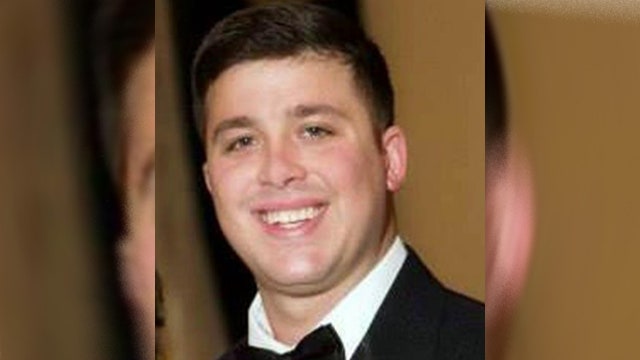Staff Sgt. Thomas Florich, a Louisiana National Guardsman killed when his Black Hawk helicopter crashed in a training accident, was laid to rest Tuesday with full honors at Arlington National Cemetery after the Army reversed its initial decision to deny his family's burial request.
Florich's family fought with the Army for months to allow their son to be buried with the Marines whom he was serving alongside when their UH-60 Black Hawk helicopter crashed in the Gulf of Mexico during a dangerous training mission in inclement weather.
The accident occurred on March 10, 50 miles east of Pensacola, Fla.
All 11 servicemembers on board were killed. The seven Marines killed alongside Florich were granted the option of being buried at Arlington.
But at first, the Army said Florich, who served as the flight mechanic onboard, wasn't eligible because he and the other Guardsmen were not technically on active duty at the time of the accident.
"The fact that the definition of active duty is used in this reminds me of low-intensity conflict -- it may be low-intensity unless you're in it. I think my son was very active on that aircraft," his father Stephen told Fox News in May.
Florich was 26 years old when he was killed. Stephen Florich told "Fox and Friends" in May that his son was in uniform and "serving in the capacity as a crew chief and a door gunner" at the time. "And in adverse weather conditions, he accepted a mission to train people for combat in the future. And in that, he gave all and lost his life," he said.
Outgoing Army Secretary John McHugh eventually reversed the decision, granting permission for Florich to be buried after Arlington National Cemetery denied their requests.
He also ordered a review of Arlington's burial criteria.
"After reviewing the Florich family's request, McHugh agreed that there was a 'compelling justification for granting this request for an exception to ANC's interment eligibility criteria'," the Army said in a statement on June 12.
The Army has been the cemetery's steward, overseeing burials at Arlington since 1864.
The problem, they argued, is space.
Cemetery spokeswoman Jennifer Lynch said Arlington is expected to run out of burial space in about 40 years, meaning "those currently serving on active duty may not have an opportunity to be buried at Arlington National Cemetery, if they retire after a life of service."












































